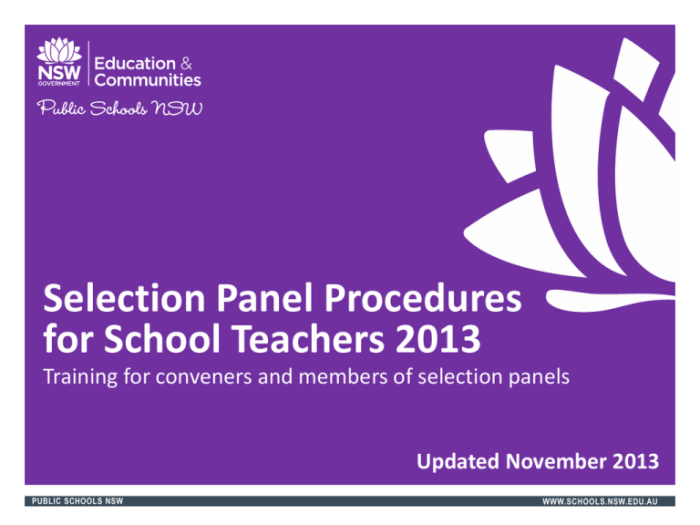Advancement selection board panel members review – Advancement selection board panel members play a critical role in the promotion and career progression of individuals within an organization. This review provides an in-depth examination of their responsibilities, the selection process, best practices, training opportunities, and challenges associated with their work.
By understanding these aspects, we can enhance the effectiveness and fairness of advancement selection boards.
The review delves into the decision-making process, evaluation criteria, and methods used to assess candidates’ qualifications. It also explores strategies for fostering a positive and productive board environment, promoting diversity and inclusion, and ensuring adherence to legal and ethical considerations.
Advancement Selection Board Panel Members’ Responsibilities
Advancement selection board panel members are entrusted with the critical task of evaluating candidates for promotion and advancement within an organization. Their primary responsibilities include:
- Assessing candidates’ qualifications, experience, and potential based on established criteria.
- Conducting interviews and reviewing performance records to gather information about candidates.
- Evaluating candidates’ leadership abilities, communication skills, and other relevant attributes.
- Making recommendations for promotion or advancement based on their assessment of candidates’ suitability.
- Ensuring that the selection process is fair, impartial, and transparent.
Selection Process and Procedures

Advancement selection boards typically follow a structured process to evaluate candidates. This process may involve:
- Announcing the vacancy and inviting applications.
- Screening applications to identify qualified candidates.
- Conducting interviews with shortlisted candidates.
- Reviewing performance reviews and other relevant documents.
- Assessing candidates’ qualifications and experience against established criteria.
- Making recommendations for promotion or advancement.
Best Practices for Panel Members

Effective panel members adhere to best practices to ensure the integrity and fairness of the selection process. These practices include:
- Maintaining impartiality and objectivity throughout the evaluation process.
- Focusing on the candidate’s qualifications and merits, rather than personal biases.
- Treating all candidates with respect and professionalism.
- Creating a positive and supportive environment for candidates during interviews.
- Documenting the selection process and rationale for decisions.
Training and Development Opportunities: Advancement Selection Board Panel Members Review
Advancement selection board panel members can enhance their skills and knowledge through training and development opportunities. These opportunities may include:
- Workshops on interviewing techniques and evaluation criteria.
- Seminars on unconscious bias and fair decision-making.
- Mentoring programs with experienced panel members.
- Online courses on leadership and management.
- Participation in professional organizations related to human resources and talent management.
Challenges and Controversies

Advancement selection boards may face challenges and controversies, including:
- Allegations of bias or subjectivity in the selection process.
- Concerns about the fairness and transparency of the evaluation criteria.
- Disputes over the qualifications and suitability of selected candidates.
- Potential for conflicts of interest among panel members.
Diversity and Inclusion in Selection Panels

Diversity and inclusion are essential elements of effective advancement selection panels. Diverse perspectives and experiences:
- Enhance the panel’s ability to evaluate candidates from different backgrounds and experiences.
- Promote fairness and equity in the selection process.
- Foster a more inclusive and welcoming organizational culture.
Legal and Ethical Considerations
Advancement selection boards must adhere to legal and ethical considerations, including:
- Ensuring compliance with equal opportunity and non-discrimination laws.
- Maintaining confidentiality of candidate information.
- Avoiding conflicts of interest and conflicts of loyalty.
- Documenting the selection process and decisions in a transparent and accountable manner.
Clarifying Questions
What are the primary responsibilities of advancement selection board panel members?
Advancement selection board panel members are responsible for evaluating candidates’ qualifications, making promotion recommendations, and ensuring fairness and objectivity in the selection process.
How are advancement selection board panel members selected?
Panel members are typically chosen based on their expertise, experience, and objectivity. They may be drawn from within the organization or from external sources.
What are some best practices for advancement selection board panel members?
Best practices include maintaining impartiality, objectivity, and professionalism; asking clear and relevant questions; and providing constructive feedback to candidates.